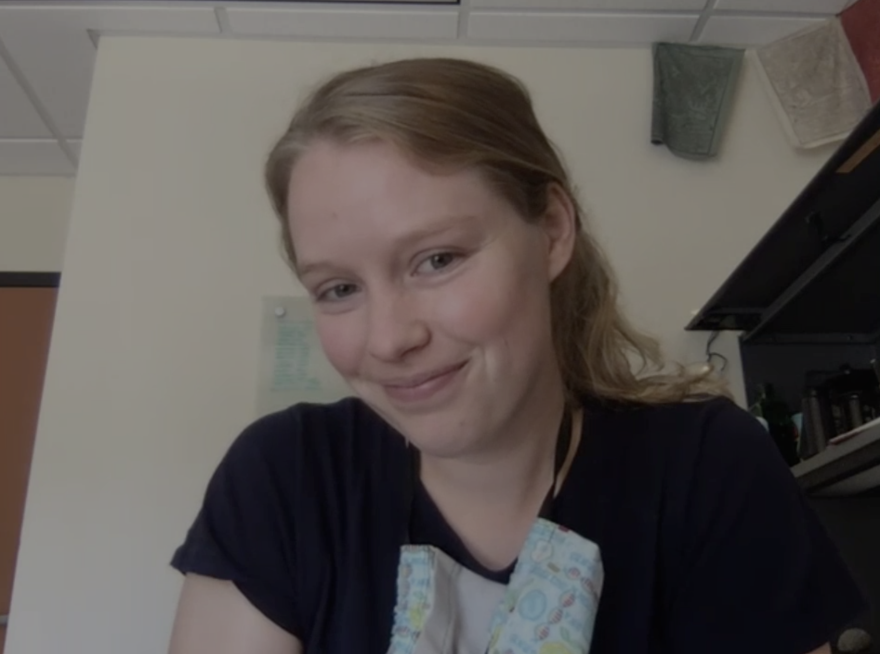Many in the university research community say science will eventually help find a vaccine for the coronavirus. But across Wisconsin, it's an uncertain time for the thousands of scientists — young and older — studying and working at universities. The COVID-19 pandemic has already brought some changes, and it's expected to bring more.
The president of the National Academy of Sciences warns that COVID-19 has magnified some ongoing concerns about university research. Marcia McNutt told a July webcast, "We were concerned about making the case to an increasingly skeptical public, that a university education is worth a cost that has outstripped inflation. In part, due to shrinking state support. And that justification is even more difficult with the pandemic moving learning online only."
McNutt also says some politicians have tried to score points questioning the ability to trust science, and the career paths of some students to become independent researchers have been put in doubt.
It appears at least some of those concerns apply in Wisconsin, including at larger schools like UW-Madison and UW-Milwaukee, that closed most on-campus research when COVID-19 first spread to the state in March.
Elizabeth Somsen is entering her senior year at UW-Madison, majoring in genetics and genomics. She still plans to go to graduate school, and hopes to do more study of viruses. Somsen says a lot of federal funding is rightfully being directed into coronavirus research. But she says that comes with an additional price for other fields.

"So, I think what is going to happen is there will be fewer slots to offer to graduate students this upcoming fall and probably for several years to come. So, we're taking an already competitive process and making it more competitive,” Somsen told WUWM.
But Somsen says there are still plenty of young scientists without a Ph.D., who are doing important work — being part of someone else's university lab or working in the private sector.
A UW-Madison graduate student, Kat Braun, considers herself lucky. She's in the Medical Scientist Training Program, on her way to both an M.D. and a Ph.D. Since February, Braun has been working in a virology lab, studying the coronavirus.
"It's been amazing to have my research have a more direct impact on public health guidance, hopefully, and patients within the hospital. But, on the other hand, it has been challenging. Letting go of my previous research projects and being a little uncertain about my timeline to a degree is a little unsettling. But I think that's the case for everyone,” Braun said.

Braun also worries about other graduate students who haven't been able to work in any lab or have seen their professional dreams put in doubt.
Professor Steve Ackerman is vice chancellor for Research and Graduate Education at UW-Madison. He says preliminary results from a survey this summer show some early career researchers are thinking about shifting their emphasis to the coronavirus. But Ackerman says he's not concerned about other academic fields drying up.
"I firmly believe that it's important, and we will continue to have that breadth of research that really expands everything from health to the environment, to space, to studies of poverty, as well,” Ackerman said.
Ackerman says the federal government has been flexible with UW grants affected by the COVID-19 pandemic. But some of the national university associations are hoping Congress will soon approve more assistance.

At UW-Milwaukee, professor Mark Harris is vice provost for the Office of Research. He also says other fields will continue to be active. But he says there may be more collaboration from other health disciplines toward helping fight pandemics.
"[Plus,] I think the other thing that will happen is since we all have gone through a forced experiment with remote working, I think we're going to begin to see more work at a distance, which will also make it easier to collaborate with folks who aren't their physical neighbors in the university,” Harris said.
Harris says a cross-disciplinary approach will not only force faculty to think differently, but allow more people from the community to become involved.
In the meantime, UW-Milwaukee, UW-Madison and other universities say they are working to bring more researchers back onto campus safely if that's where the faculty and students want to be.

This is not just logistics for academics, says UW-Madison's Ackerman. He says a well-functioning research community will benefit everyone.
"This is a serious pandemic, and what's going to get us out of it is science. What is going to get us out of it is research. It's going to be a basic understanding of how this virus works, and to develop a vaccine. Whether it's done at universities or private industry,” Ackerman said.
Nationally, some science groups say if they can help beat COVID-19, there could even be greater public funding for research and more public trust.
Support for Innovation reporting is provided by Dr. Lawrence and Mrs. Hannah Goodman.

Do you have a question about innovation in Wisconsin that you'd like WUWM's Chuck Quirmbach to explore? Submit it below.
_







